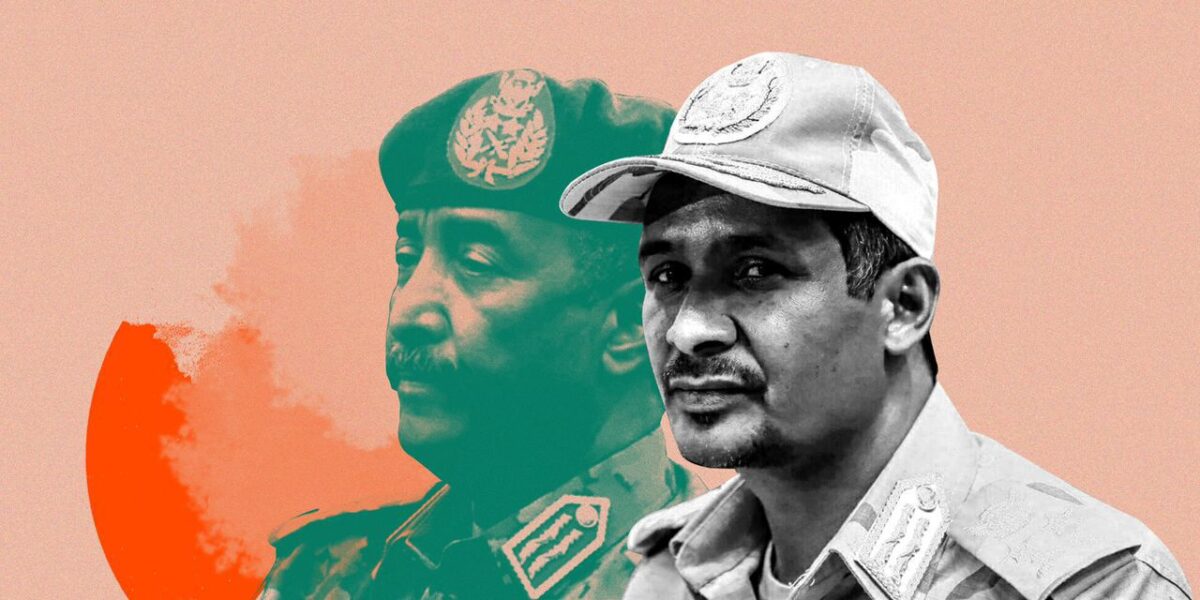The Battle of El‑Fasher and the Resilience of the Nation‑State “An African Perspective”
An old military adage states: “If your enemy commits the same mistake twice, it’s likely an ambush.”
Francophone African elites refer to the Sudanese city of El‑Fasher as “La pierre angulaire”—the cornerstone. This term reflects discussions in numerous African cultural and academic forums, which view the crisis in Sudan as a modern African exemplar of resistance against international armed plunder of African states’ resources, a front that prevents the redefinition of the nation‑state in Africa, a strategic focus for command colleges developing military doctrine, and an operational stage for the eradication of transnational militias, severing their allegiances and rooting them out.
Two key insights are recognized both by African political leaders and the Rapid Support Forces (RSF):
- First, the Battle of El‑Fasher is seen as the final bloody chapter that will define the historical trajectory of the Sudanese state. While it may not be the literal last nail, it is considered a moment of reckoning demanded by souls that confronted unprecedented barbarism in modern Sudanese history.
- Second, even though the RSF has suffered repeated defeats and lost moral, political, and military cohesion, its desperate attempts to impose a new political reality in Sudan continue. These efforts are driven not by ideology, principle, or patriotism, but by a slowly internalized logic of power—revealing the true stakes and sacrifices behind the movement.
Sudan’s recent multi‑front army advances send three clear strategic signals to the international community:
- Although aware of the conflict’s realities, the international community is no longer willing to prolong it or endure its consequences, previously thought to be confined to Sudan alone.
- Since South Sudan’s secession in 2011, external actors and their allies have underestimated Sudan’s capacity for resistance, planning, and confrontation—this miscalculation allowed transnational militias to prosper under support unparalleled even during the colonial era.
The Sudanese leadership has communicated three firm messages to the international community:
- The RSF’s war against Sudan’s armed forces aims to destroy the state, its resources, institutions, and populace—a campaign devoid of any genuine national agenda, social justice, or democracy; accordingly, confronting and eliminating the RSF is a sacred duty.
- All Sudanese military, security, and civilian sectors agree that the RSF is a geopolitical instrument incongruent with Sudan’s and the Horn of Africa’s sovereign interests.
- Key international actors must reassess their political and security calculus, recognizing that no outlaw group, however well‑supported logistically, can deliver legitimate outcomes.
Since April 15, 2023, some international and regional actors bet on El‑Fasher falling to the RSF after they seized much of the region. Yet the city’s resistance became the prelude to Khartoum’s liberation—indicating that the decisive future of Sudan after Bashir was shaped by the Battle of El‑Fasher as much as by that of Khartoum.
Following Khartoum’s liberation and with plans for a Darfur campaign underway, three distinct narratives concerning El‑Fasher have emerged:
- The RSF perspective: They believe their survival after Bashir depends on retaining El‑Fasher. Its loss would trigger deep internal erosion—a concept known in security intelligence as “structural predation”. El‑Fasher is thus their last best chance to restore ideological legitimacy and gain external recognition. The RSF’s declining morale is evident, including vivid admissions like that of tribal leader Nadhir Madubī: “If Mutaharrik al‑Sayad reaches eastern Darfur, I will surrender to the army.”
- The Sudanese state perspective: State leadership views this war as a historic opportunity to fully reclaim and rebuild the nation. Releasing Darfur—starting with El‑Fasher—is considered essential to rooting out the partitionist project, reinforcing national unity, and drawing a definitive line from the Islamist regime of Al‑Ingaz.
- The international perspective: The global community now acknowledges two core facts:
♦️ Sudan’s post‑Khartoum army has evolved into an operationally capable force shaped by three years of conflict, far from its former traditionalist posture.
♦️ Sudan’s security apparatus is preparing to confront threats beyond transnational militias, a reality acknowledged only by true sovereign states—without foreign oversight. International observers now see that the RSF’s strength no longer stems solely from domestic dynamics but from a reshaped political and military experience clarified by the April 2023 “Battle of Dignity.”
Rapid developments suggest military operations will extend beyond El‑Fasher. Whereas Sudan’s western complications once seemed overwhelming, the current conflict has created a historic window. The Sudanese army—with fortuitous timing—can now reconstruct the state from within, fully reintegrating Darfur: no Sudan without a liberated Darfur.
Possible outcomes for El‑Fasher:
- Scenario One: Complete army control of Darfur
Depends on:
- Modern military supplies;
- Continued RSF defections;
- Capture of El‑Daein, destabilizing RSF balance—especially after Madubī’s vow to surrender if eastern Darfur falls. Tribal dynamics with Chad require a strategic integration approach.
- Scenario Two: RSF retakes El‑Fasher
Achievable via:
- Infiltrated cells inside the city (amplified by Gen. Ali Yaqub’s death);
- Dragging the army into unpredictable engagements.
Khartoum warns that losing El‑Fasher would validate Sudan’s partition and harm domestic support for the military.
- Scenario Three: Stalemate
Ongoing clashes without decisive victory, worsening urban conditions, prompting humanitarian crisis and possible international intervention—raising the specter of Darfuri independence.
- Scenario Four: Territorial division of Darfur
In a prolonged arms race, a negotiated division could occur (3 of 5 states), though unlikely—Sudanese forces insist on total rebel elimination, while the RSF seeks to preserve its strongholds. Nonetheless, Darfur’s future remains fluid.
To support effective nation‑state rebuilding in post‑Bashir Sudan, the following policy recommendations are proposed:
- Media coordination: Collaborate with African broadcasters to mobilize public opinion against rebel militias threatening state integrity and institutional legitimacy.
- Influence in RSF heartlands: Particularly within the Misseriya community, whose loyalty is wavering amid the RSF’s setbacks in Kordofan. Journalist Youssef Abdel‑Manan summed it up: “Hemeti’s project in Sudan is not national—it reflects personal ambitions shaped by external agendas…” This explains rising defections.
- Create a Sudanese “transactional diplomacy” unit—prioritizing economic and security leverage over long‑standing alliances.
- Join Ankara’s emerging Horn of Africa strategic alliance, legitimizing Khartoum and isolating the RSF regionally and globally.
- Form a Sudan‑led security coalition to combat armed threats across Africa—partnering with Nigeria, Cameroon, and Ghana, building on post‑Khartoum cooperation against the RSF.
- Launch targeted media campaigns to debunk misleading narratives—especially Libya‑Sudan comparisons—highlighting Sudan’s intellectual richness, social flexibility, and unique concept of “Haute vision”: the ability to elevate minds beyond any endpoint while grounding them in their origins. This unity transcends ideological divides, as seen in mixed gatherings of communists, liberals, Muslims, and Christians—bound by shared patriotism.
A scholarly contribution by the researcher is available at the following link:
معركة الفاشر، وثبات الدولة الوطنية “رؤية إفريقية”
Dr. Amina Al-Araimi
Emirati Researcher in African Affairs

